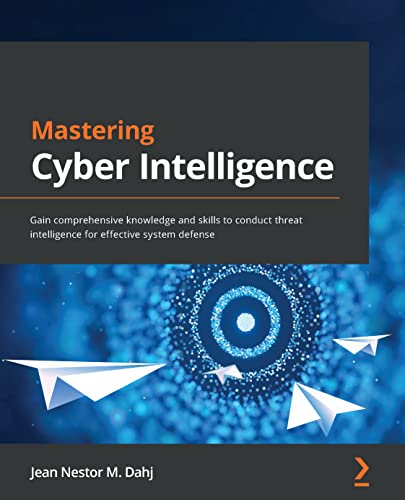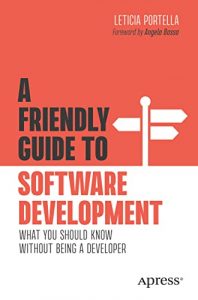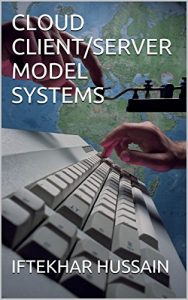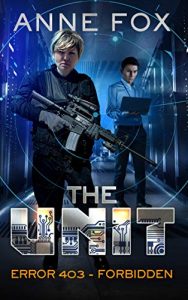1. Mastering Cyber Intelligence
Authors: Jean Nestor M. Dahj
This enlightening book provides readers with comprehensive knowledge and skills to conduct effective threat intelligence, essential for mastering system defense in today’s digital landscape. With in-depth analysis and practical insights, it empowers cybersecurity professionals to anticipate potential threats and react proactively. The reader is equipped not just with the theoretical underpinnings of cyber intelligence but also actionable strategies to fortify their defenses. If you want to stay ahead in the cyber security game, this book is a must-read!

2. Practical Cyber Intelligence: A Hands-on Guide to Digital Forensics
Authors: Adam Tilmar Jakobsen
Scheduled for release in August 2024, this book promises to be a game-changer for those seeking a practical approach to digital forensics. Jakobsen leverages his experience to curate a hands-on guide that simplifies complex concepts into digestible content. This book is tailored for both beginners and seasoned professionals in the cybersecurity field, focusing on real-world application of digital forensics. The practical exercises provided will enhance your skills and prepare you for actual cyber threat scenarios.

3. Cyber Threat Intelligence: The No-Nonsense Guide for CISOs and Security Managers
Authors: Aaron Roberts
This no-nonsense guide is tailored for CISOs and security managers seeking straightforward and practical advice on integrating cyber threat intelligence into their defense strategies. Roberts breaks down complex concepts into actionable insights that can be readily applied in a corporate context. This book is a must-have for leaders eager to strengthen their organization’s resilience against cyber threats by fostering a proactive security culture.

4. Practical Cyber Intelligence: How action-based intelligence can be an effective response to incidents
Authors: Wilson Bautista
Bautista’s book delves deep into action-based intelligence, examining how timely and efficient intelligence response can mitigate incidents effectively. The author’s engaging prose combines theory with case studies, making it useful for professionals working in high-stakes environments. This book inspires a proactive mindset, empowering readers to anticipate threats and strategize effectively, which is crucial in today’s fast-evolving cyber threat landscape.

5. The Decision to Attack: Military and Intelligence Cyber Decision-Making
Authors: Aaron Franklin Brantly
This compelling read examines the critical decision-making processes behind military cyber operations. Brantly provides a detailed exploration of the strategic calculus that drives cyber attacks, revealing the intricate interplay between military strategy and cyber intelligence. Essential for anyone interested in the intersection of national security and technology, this book equips the reader with a sophisticated understanding of cyber warfare.

6. Offensive Cyber Operations: Understanding Intangible Warfare
Authors: Daniel Moore
In “Offensive Cyber Operations,” Moore provides insights into the strategic and tactical dimensions of cyber warfare. The book highlights the evolving landscape of cyber operations and their implications for global security. Moore’s rigorous analysis offers valuable lessons on the nature of intangible warfare and its consequences, making this book a crucial read for military strategists and cybersecurity experts alike.

7. Building Cyber Threat Intelligence Capabilities for Organizations
Authors: Robert Vidal
Vidal’s insightful book outlines the essential components organizations need to build a robust cyber threat intelligence capability. It emphasizes the importance of integrating intelligence into the organizational structure and operational processes. With a wealth of practical tips and frameworks, this book guides organizations in fostering a culture of security awareness and vigilance that is essential in today’s threat landscape.

8. Visual Threat Intelligence: An Illustrated Guide For Threat Researchers
Authors: Thomas Roccia
Roccia’s “Visual Threat Intelligence” is a unique and creative approach to understanding cyber threats through illustrations and graphics. This book makes complex concepts accessible, making it perfect for both novice and seasoned threat researchers. The visual elements engage readers, facilitating better retention and understanding of how to gather, analyze, and use threat intelligence effectively.

9. Practical Cyber Threat Intelligence: Gather, Process, and Analyze Threat Actor Motives…
Authors: Dr. Erdal Ozkaya
This essential guide presents a structured approach to gathering and analyzing cyber threat intelligence. Dr. Ozkaya emphasizes the significance of understanding threat actor motives, enabling cybersecurity professionals to design more effective defenses. The practical tools and frameworks provided throughout the book help readers implement intelligence-driven security strategies that respond to evolving threats.

10. Battlefield Cyber: How China and Russia are Undermining Our Democracy and National Security
Authors: William J Holstein, Michael McLaughlin
This provocative book sheds light on the strategic cyber operations employed by adversarial nations and their impact on democracy and national security. Holstein and McLaughlin delve into the geopolitical dimensions of cyber warfare, providing a narrative that is both informative and alarming. It is an essential read for those who want to understand the broader implications of cyber operations in today’s world.





































